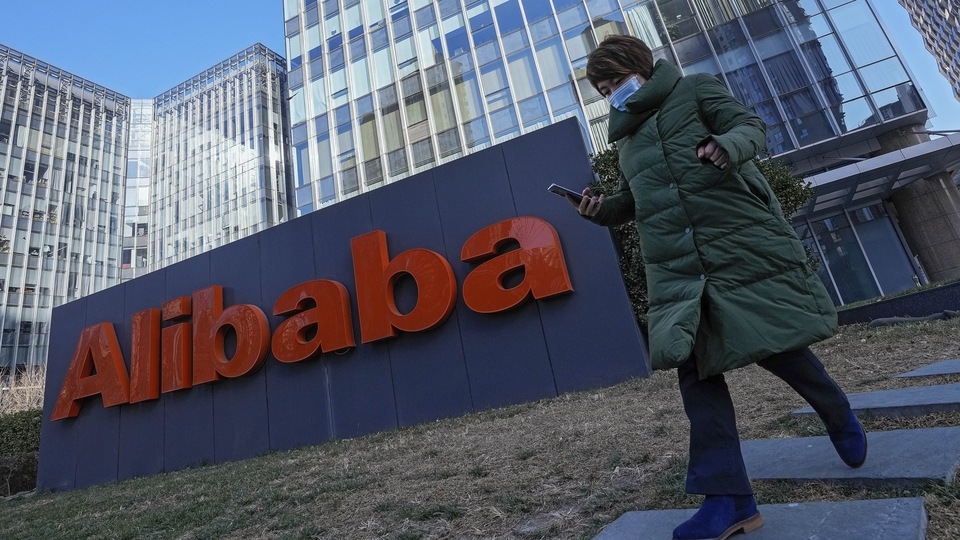China's Alibaba Has a Much Bigger Problem Than the Tech Crackdown
Common prosperity and regulatory enforcement collide with even stronger headwinds: There are no new customers left.

Alibaba Group Holding Ltd.'s slowest quarter on record comes amid a prolonged crackdown on China's major technology companies. It's easy to conflate the two.
But the increased regulatory burden is overshadowed by even harsher problems. Chief among them: peak customer. It's a reminder that the country's burgeoning middle class is no longer easy pickings for high-flying companies with ubiquitous platforms.
“We believe we have substantially captured all consumers with purchasing power in China,” Chief Executive Officer Daniel Zhang told investors late Thursday. “We'll focus on a shift from new-user acquisition to user retention and [average revenue per user] growth.” The new approach comes as overall consumption growth falters in China, forcing the company to look overseas for new customers.
Alibaba's struggle is borne out in the numbers. Revenue for the three months to December climbed just 10%, compared with 29% growth the prior period. Sales at its core commerce unit — which comprises 71% of the overall business — rose a mere 7%. Those numbers cap a year in which Chinese President Xi Jinping sought to curb the power of internet titans and pivot the country toward “common prosperity,” where wealth and income is shared more evenly.
For companies like Alibaba, social media player Tencent Holdings Ltd., and deliveries provider Meituan, the result has been a push to break up perceived monopolies and soften their competitive advantage. Exclusive listings, leveraging user data to sell services, and excessive subsidies were all in regulators' sights, forcing companies to sacrifice earnings margins and rethink their business models.
Alibaba executives in August pledged to plow “excess profits” back into parts of its e-commerce business in the form of merchant support, a second-hand marketplace and streaming commerce. At the time, this looked like a reaction to the crackdown, and came just months after the company was slapped with a record $2.8 billion anti-monopoly fine, equal to 4% of its 2019 domestic revenue. In reality, it was also a response not just to a tougher competitive landscape, but an acknowledgement that the high-growth days are over.
Chinese retail sales growth dropped to 1.7% in December, less than half the rate estimated for the period. November, a period when it enjoys a boost from its annual Singles Day sales, was also weaker. Other areas of the economy are likewise looking shaky. Property investment in December dropped 14% from a year earlier (and 17% from the prior month), while home sales along with real-estate financing both plunged almost 20%.
By the December period, the reality of those macroeconomic challenges was even more evident in China's data. Gross domestic product climbed 4% in the quarter, slower than the prior three months. That spurred the People's Bank of China to cut a key interest rate to juice growth, at a time when central bankers around the world are preparing to raise lending costs.
Making that task even harder is Beijing's insistence on stamping out Covid clusters, while external shocks, like Russia's invasion of Ukraine, remain an ever-present risk. This means that a sustained rebound in spending has been, and will continue to be, on shaky ground. That not only affects the revenue of businesses on its platforms, but risks creating a vicious cycle of dampened sentiment among consumers unsure of their own economic future.
This level of weakness tends to lead to price wars, or increased rebates, even without guidance from a government forcing them to cut fees or boost competition. To offset the challenge, Alibaba has started a renewed push to get more customers in overseas markets, but success is not assured.
It's not easy to distinguish whether common prosperity or broader economic softness is spurring the company to leave more money in the hands of merchants and consumers, and return less to shareholders. The ongoing tech crackdown doesn't help the company battle these economic headwinds, but those challenges were already on the horizon before common prosperity came along.
Catch all the Latest Tech News, Mobile News, Laptop News, Gaming news, Wearables News , How To News, also keep up with us on Whatsapp channel,Twitter, Facebook, Google News, and Instagram. For our latest videos, subscribe to our YouTube channel.

























